The Start of RomeThe Trojan War was a Super Awesome Powerful Legendary War between The Trojans of Troja(Troy) and The Classical World (Greeks). The Classical World Won The War with the Trojan Horse. The Warriors of The Classical World hid inside The Trojan Horse which was a giant wooden horse that acted as a surrendering gift to The Trojans. The Trojans did not think twice about bringing this ‘gift’ into their city walls of Troja. That night, The Trojans threw a Party and become quite intoxicated. When the time was right, The Classical World Warriors came out of The Trojan Horse and laid siege to Troja. The Classical World claimed Victory in The Trojan War. Not all Trojans were slaughtered however and escaped from the ruins of their once great city. The fleeing Trojans (outlined in The Aeneid) would eventually make their way to the land of Latium. This land in Italy would one day be called Rome! Romulus and RemUs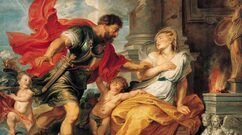 The Founding of Rome cannot be told without the Legendary story of how it was founded. The Story of Romulus and Remus. Alba Longa, a kingdom in Italy, had a King. King Numiton is The Grandfather of who would be the founders of Rome, Romulus and Remus. Numiton had a brother named Amuliud. Amuliud was jealous and wanted to take Numiton's place as King of Alba Longa. Amuliud slains Numiton and his son then kidnaps Numiton's daughter Rhea Silvia. In order to stop any legitimate opposition for the throne, Amuliud forces Rhea Silvia to become a vestal virgin & unless you are Holy Mary, thou need to have coutius in order to beget children. However, this would not stop the fate of Amuliud's demise for The Roman god Mars, The Roman god of War, has relations with Rhea Silvia and conceives and gives birth to twin brothers Romulus and Remus. Hearing of this birth, Amuliud sends his servant to cast them into the river and to drown them. His servant however cannot bring himself to commit this infanticide. Instead his servant puts the twin brothers into a basket and send them down the stream. When the carriage finally ceases to stream, the baby brothers land on what would eventually become The City of Rome. Thence a she-wolf discovered them two boys and weens them and takes care of them for a time being; raising them as fellow wolves. Later on a herdsmen named Faustulus and his wife Acca Larentia. Romulus and Remus are thence brought up as shepherds. Romulus and Remus, Naturally, become Adults and come to learn of a corral The Loyalist of Amuliud and The Loyalist of Numiton. During this corral they learn of their true origins and that Numiton was their Father. The most important thing they learn though, is that they were destined to become Kings! With the passion of a lion stalking its prey, Romulus and Remus Join The loyalist of their late father Numiton. They then end up slaughtering and overthrowing Amuliud and avenge their Father. The vengeance was sweet as a cherry pie in mid-spring with a cool breeze flowing through thy hair. With that they establish as new kingdom set where the she-wolf discovered and nursed them as infants. This kingdom will become Rome. There was dispute on who owned what and where the kingdom was to be placed. The two split their kingdoms with Remus's land on Mount Remus and Romulus on Palatine Hill. In the end, they both knew that one would become sole sovereign of The Kingdom. Remus was the first to see birds fly over head which made him to claim control over all the lands. However, Romulus saw twofold the amount of birds(12) that Remus saw, so he claimed to own all the land. Romulus built a wall around his territory to keep out invaders. Remus laughed and mocked this wall saying that it could not keep invaders from crossing into his lands. Remus then proceeded to jump back and forth across the wall, mocking Romulus. In a fit of rage, Romulus slaughtered his brother and become The Sole ruler of The Kingdom of Rome. Romulus, What Hast thou done? Thou hast slain thy brother. Thou hast Cain thy Abel. His blood flows through thy kingdom and his vengeance shalt be dealt to thee. For yay, thy land shalt be great indeed, but with thy brother's slaughter, thou Kingdom wilt never stretch across The World nor will it last forever. For it is doomed to only last a millennium. For thy legacy and Father's Legacy, Mars, shalt be taken and given to a different son of God and God. Rome shalt last, but thine Rome shalt Fall. The First King of Rome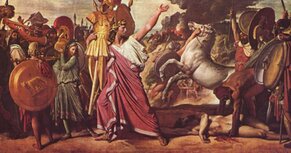 Rome would be established on April 21st, 753 B.C. This day would known as Parilia. With the murder of his brother Remus, Romulus would become The First King of Rome, The Rex of Roma. He declared himself The King of Rome after killing his brother Remus. In The Early days of The Roman Kingdom, any man could join the ranks as citizen. Naturally this brought in a significant portion of outlaw men into its citizenry. But as is all to well known, without a future generation to pass the torch down too, the future of the civilization will be non-existent. And of course, it takes two to tango. With a population of just men and no women, reproducing could not occur. To help bring in wives for his men to reproduce with, Romulus Rex tried to negotiate with The Sabine peoples to offers some of their women in order for The Roman Kingdom to survive into future generations. The negotiations fell flat however & The Sabine people refused to give their women to The Romans. Naturally, this would not work for the Romans, so Action must be taken to prevent The Extinction of Roma. During The Festival of Neptune Equester, The Roman Men kidnapped The Sabine Women and fought off The Sabine men's attempt to stop The Roman abduction of their women. This attempt by The Sabine men was unsuccessful however and The Superior Romans took The Sabine Women as Wives. This event was known as The Rape of The Sabine Women. A War broke out against The Romans and The Sabines with other Italian Tribes. The First battle was fought when The Caeninenses invaded Roman territory. Big mistake however, for Romulus and his men slaughtered The Caeninenses King. The Sabines later on would Officially declare War on The Kingdom of Rome. Because of the traitor Tarpeia, The daughter of Spurius Tarpeius, The Sabines and their King Titus Tatius was about to enter The walls of Rome and capturing it. The Sabines were dead set on killing every last Roman with no mercy. Romulus rallied The Romans to counter attack the Sabine advance and pin them at the gate of The Palatium. The Wives of The Romans, The Captured Sabine Women, got in the way and pleaded for their husbands and their former folk to cease the fighting. The Roman Kingdom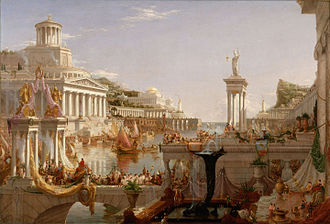 The Kingdom of Rome lasted from 753 B.C. with The First King of Rome, Romulus to 509 B.C. He reigned till his day of passing in 716 B.C. at the Age of 56. It is legend that he was swept away by a whirlwind from a colossal brutal storm. In this storm he told to have ascended into Heaven to join his Father, The Roman god of War, Mars. Romulus Rex's successor was The Second King of Rome and his Brother-in-Law, Numa Pompilius. Numa Pompilius took the throne in 715 B.C. when he was elected to be Rex by The Curiate Assembly. Rex Numa Pompilius was from The Sabine Region of The Italian Peninsula. Rex Numa Pompilius was accredited to many important things for Roma including The Roman Calendar, The Cult of Jupiter, The Cult of Mars, The Cult of Romulus, The Vestal Virgins and the religious office of Pontifex Maximus. The Roman Calendar was The official calendar used by The Roman Kingdom and later Roman Republic which would later be reformed in The First Century B.C. by Julius Caesar becoming The Julian Calendar which would be later reformed by The Catholic Church into the calendar we use in Today's World known as The Gregorian Calendar. The Roman Calendar was a ten month calendar which included the months: Menis Martius or March (Month of Mars), Menis Aprilis or April (Month of Apru or Aphrodite), Mensis Maius or May (Month of Maia), Mensis Iunius or June (Month of Juno), Mensis Quintilis or July Later on being named after Julius Caesar (Fifth Month), Mensis Sextilis or August later on being named after Augustus Caesar (Sixth Month), Mensis September or September in Today's World (Seventh Month), Mensis October or October in Today's World (Eight Month), Menis November or November in Today's World (Ninth Month) and Mensis December or December in Today's World (Tenth Month). The Length of a Year in The Roman Calendar is 304 Days vs The 365 Days in both The Julian Calendar and Gregorian Calendar which both hath leap years with 366 Days. Not much is known about The Cult of Jupiter, only member of the cult knew much of its practices and beliefs. It is known however that members addressed Jupiter (Supreme Roman god) as Jupiter Optimus Maximus Dolichenus. Optimus Maximus is Latin for "Best and Greatest". Not much is known of the cult of Mars neither. Mars is known as the god of war so we can assume that war or battle had something to do with the practices of this cult. The Cult of Romulus was a following of The First King of Rome. This cult would later become a cult for The Sabine People known as The Cult of Quirinus. Vestal Virgins also known as just Vestals, were priestesses who worshiped Vesta, the goddess of the hearth. The hearth is the sacred fire which burned at the college of vestals which was responsible for the continuation of Rome. The Vestal Virgins were tasked with keeping the fire burning indefinitely, lest Rome fall. Numa Pompilius at first, refused to accept the throne as King of Rome, due to his belief that Rome was a nation of war and that a strong warrior leader should rule over Rome and command it's armies. He later accept the office of King by persuasion of his tutor and the father of Marcus, his son-in-law. The Second King of Roma, Numa Pompilius's reign would end in 673 B.C. where he would be succeeded by The Third King of Rome, Tullus Hostillius. If Numa Pompilius was a King of Peace and Romulus was a King of War, then Tullus Hostillius was a King of War sevenfold. Tullus Hostillius thought his predossesor was weak and therefore made The Roman Kingdom weak. Therefore the game of war was back on for Rome. Tullus Hostillius was known for The Battle of Alba Longa; a war that sought to defend the honor of Rome from The city of Alba Longa. The rules were that the last one standing would be declared victor. In the end Rome won. Though the city of Alba Longa still exists in Italy Today. Tullus Hostillius was such a War-hawk King, that he even started a war with The King of The Roman gods, Jupiter. Legends go that this is what led to the death of The Third King of Rome. Tullus Hostillius was the grandson of Hostus Hostilius, who during The Sabine Invasion of Rome, was killed in battle by The First King of Rome, Romulus Rex. Tullus Hostillius would end his reign when he died in 642 B.C. His succcesor would come to the throne in 642 B.C., The Fourth King of Rome, Ancus Marcius. Ancus Marcius was declared Interrex ,between kings, of Rome by The Roman Senate and would later be Crowned Fourth King of Rome in a session by The Assembly of The People. Ancus Marcius, later his predecessor and Romulus, would also be a King of War. His mother, Pompilia, was the daughter of The Second King of Rome, Numa Pompilius. The First Act as King of Rome for Ancus Marcius was the reenstate the religious edicts set forth byt The Second King of Rome, Numa Pompilius, which were removed by The Third King of Rome, Tullus Hostillius. Later on, The Native Latins would start a War with Rome to regain the lost territory The Roman Kingdom occupied in Latina. At the time, The Latin occupied The Aventine Hill which was one of the seven hills that form the territory of The City of Rome. Thinking that invasion would cause Ancus Marcius to fold and ask for diplomatic peace attacked The Roman Kingdom. This was a huge mistake, for Ancus Marcius was in fact, a King of War. This caused Ancus Marcius to declared War with The Latins, after the Latins refused to pay restitution money. Ancus Marcius would march into The Latinium City of Politorium, by storm and the Latins were removed from The City. Politorium would later be destroyed by The Romans. After the sacking and demolision of Politorium, The Roman would do the same to The Latinium Cities of Ficana and Tellenae. After that, the battle was set for The Latinium Town of Medullia. After many tries at the well fortified town, The Romans would eventually sack Medullia and bring home loot after the battle. After that Rome would take over the Latin town of Janiculum and make it a part of Rome and take in Latins as Roman Citizens. The great expansion of The Roman Kingdom would begin and the influence of The Tiber River was to The Romans. The Absolute Victory of The Trojans over The Latins was clear. At the age of 60, The Fourth King of Rome, Ancus Marcius would die of natural causes in 617 B.C. He left behind and bigger and more powerful Roman Kingdom. His successor would be The Fifth King of Rome, Lucius Tarquinius Priscus, also known as Tarquin The Elder. His reign would mark the beginning of The Etruscan Dynasty in The Roman Kingdom. The Estrucans are from The Central Italian Region of Etruria which is modern day Tuscany, Umbrea and Lazio. Lucius waged a new war with The Latins, where he expanded Roman terriority even further. He first took the Latinium town of Apiolae, after Lucius conquered many other towns in Latinium bringing them into The Roman Kingdom. The Latins would eventually ask for support from The Sabines and The Estrucans but eventualy Rome would cease Total Victory over Latinium. After The Victory against Latinium, Lucius waged war against The Sabines. Even though The Sabines were great in battle, Lucius was able to stealthily attack the Sabine base at nightfall. He attacked using boats with flames pushed down the river catching The Sabine base on fire. While The Sabine military was busy trying to put out the fire to their camp, The Romans moved in and destroyed the Sabine Camp completely. Later in 585 B.C., The Sabines would lead an assault against The Roman Army but Lucius's troops would stand ground and declare victory on September 13th, 585 B.C. With this, The Latinium towns of Cameria, Old Ficulea, Meduilia, Nomentum, Corniculum and Ameriola would be conquered and brought into The Roman Kingdom. Later on Lucius would seek peace with The Estrucans, however they would declare war on Rome. The Estrucans would first capture The Roman Colony named Fidenae; which would become the central point in The Estrucan War. In the end however, Rome would have victory over the Estrucans and Rome would become greater due to the loot from The Estrucans. In 579 B.C. an assassination of Lucius was carried out by those who believed the successor of The throne should of been the son of The Fourth King of Rome, Ancus Marius. In a set-up riot, Lucius was assassinated with an ax to the skull. The Queen however, lied and said The Lucius was not dead, but merely wounded. She took advantage of the confusion and placed Servius Tullius as regent. Once it was established that Lucius was killed, Servius Tullius would become The Sixth King of Rome in 578 B.C. Servius Tullius Rex was most known for his reforms to The Roman Kingdom which expanded Roman Citizenship to lower class Romans and non-Romans. This made Servius Tullius a Popular King. He would reign for 44 years until he was assassinated in 535 B.C. by his daughter Tullia and his son-in-law Lucius Tarquinius Superbus. Lucius Tarquinius Superbus also known as Tarquin The Proud, would now take the throne and become The Seventh and Final King of Rome. To become King of Rome he lobbied the support of the patrician senators, especially those from families who had received their senatorial rank under Tarquin the Elder, his Grandfather and Fifth King of Rome. He gave them gifts and spread criticism of Servius Tullius Rex. Superbus Rex would eventually be dethroned by The Roman People in 509 B.C. and The Roman Republic would be created. The Etruscan oppression of The Romans was over. The Roman RepubliC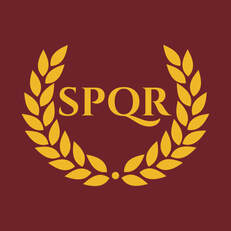 Beginning in 509 BC after the fall of The Roman Kingdom by The Roman people overthrowing The Etruscan Dynasty. This happened due to The Final King of Rome, Lucius Tarquinius Superbus, raping the noblewoman Lucretia who later committed suicide because of this violation of her. Lucius was then exiled by The Roman Senate led by the lobbying of Lucretia's father and Superbus's nephew to Etruria. The Roman Senate then abolished The Roman Monarchy and The Roman Kingdom and thenceforth The Roman Republic was formed. The duties of the former office of King would be for a newly established consul of two who would be annually elected The Senate. The First Two Consuls in The Roman Republic were Lucius Junius Brutus and Lucius Collatinus. The control of The Roman Republic spanned across The whole Mediterranean World, with a cultures of The Romans, The Latins, The Estrucans, The Classical World (Greeks), The Sabine and The Octans. The name of The Roman Republic was Roma and Senatus Populusque Romanus (SPQR) which translates from Latin to The Roman Senate and People. The Capital of The Roman Republic was Rome. The Official Language of The Roman Republic was Classical Latin. Other Languages spoken in The Roman Republic included: Greek, Etruscan, Osco-Umbrian, Venetic, Ligurian, Rhaetian, Hebrew, Berber, Gaulish, Nuragic, Syriac, Sicel, Aramaic, Punic, Iberian, Coptic, Illyrian, Celtiberian, Lusitanian, Gallaecian and Aquitanian. The Official Religion of The Roman Republic was Roman Polytheism which borrowed much of its aspects from The Classical World Religion like their gods such as Zeus The King of The Classical World gods becoming Jupiter The King of The Roman gods, Aries The god of War becoming Mars The god of War and Hermes The Messenger god becoming Mercury. The type of government The Roman Republic was, was known as a Diarchic Republic meaning the leads were of two men with senators below wielding power over the nation. The Roman Republic would last until 27 B.C. and be replaced by The Roman Empire. Julius Caesar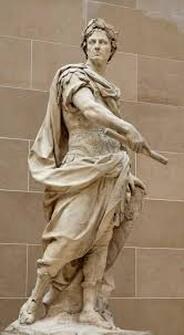 Julius Caesar, The Known Roman in The World, was known for his time as a Statesmen, A Roman General, High Priest and Roman Consul. Julius Caesar or Gaivs Ivlivs Cæsar or Gaius Julius Caesar, was born in 100 B.C. in Rome, Italy, The Roman Republic. Julius Caesar was born into a Partician Family, family being Father Gaius Julius Caesar and Aurelia. Julius Caesar was believed to be the descendant of a Famous Trojan, Julus who was the grandson of The Roman goddess Venus. This claim to ancestry would lay the ground work for him becoming a Roman god himself after his demise. In Caesar's adolescent years, he was captured by pirates and was held for ransom. Upon hearing the amount of ransom demanded, Caesar felt insulted and demanded the pirates double the amount. They accepted this demand. While captive, Caesar was said to have been a friendly guy and provided voluntary entertainment for the pirates. Before the ransom was paid, Caesar gleefully told the pirates that he would return to find them then crucify all of them. He kept good on his promise too and everyone of the pirates would be executed by way of Crucifixion. Julius Caesar would later become General of 100 Legions then Marched on Rome and become Dictator of Rome. He would eventually be assassinated by Senators of The Ideas of March, March 15th, 44 B.C. The month of July is named after Julius Caesar. more details coming soon. The Roman Empire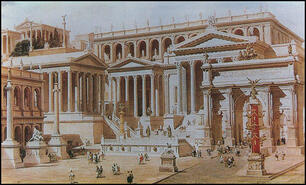 The Roman Empire Started in 27 B.C. after The Fall of The Roman Republic by The First Emperor of Rome, better known as The Princeps, Octavius Augustus Caesar. The Capital of The Roman Empire was Rome from 27 B.C. to 286 A.D. then in Mediolanum from 286 A.D. to 402 A.D. in The Western split of The Roman Empire then in Ravenna from 402 A.D. to 476 A.D. in The Western Roman Empire, this would be the final capital of The Roman Empire till The Fall of Rome in 476 A.D. The governance of The Roman Empire was an Absolute Monarchy who was elected by Roman Senators. The Official Language of The Roman Empire was Latin with other common languages being Greek and Aramaic. The Official Language of The Roman Empire was First The Imperial Cult driven Polytheism (Classical Roman Religion) till 274 A.D., then The Solar Cult known as Sol Invictus till 380 A.D., then finally Catholicism from 380 A.D. till the fall. The Emperors of Rome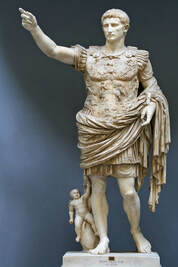 The Julio-Claudian Dynasty 1. Augustus Caesar, originally known as Gaius Octavius Thurinus, was a pivotal figure in ancient Roman history, reigning as the first Roman Emperor from 27 BC until his death in 14 AD. He was born on September 23, 63 BC, into a prominent Roman family. Augustus is renowned for his role in the transformation of the Roman Republic into the Roman Empire, marking the end of the Roman Republic and the beginning of the Roman Imperial era.Augustus rose to power following the assassination of his great-uncle and adoptive father, Julius Caesar, in 44 BC. He entered into a power struggle with Mark Antony, who was initially allied with him but later became a rival. The conflict culminated in the Battle of Actium in 31 BC, where Augustus emerged victorious, securing his position as the undisputed ruler of Rome. Once in power, Augustus implemented a series of reforms aimed at restoring stability and consolidating his authority. He established a new constitution, known as the "Principate," which preserved the appearance of a republic while concentrating power in his hands. He was given the title of "Princeps" (meaning "first citizen") and referred to as "Augustus," which means "revered" or "majestic," signifying his elevated status. Augustus undertook a vast program of public works and infrastructure projects, such as the construction of roads, bridges, and aqueducts, which contributed to the prosperity of the Roman Empire. He also established a professional civil service, reformed the tax system, and maintained a standing army to defend the borders. One of Augustus's most enduring legacies was the Pax Romana (Roman Peace), a period of relative peace and stability that lasted for much of his reign and facilitated cultural and economic growth throughout the empire. This period is often seen as a high point in Roman history. Augustus was a patron of the arts and literature, promoting a revival of classical Roman culture. His reign saw the flourishing of literature and poetry, with notable authors like Virgil, Horace, and Livy producing significant works during this time. Augustus Caesar died on August 19, 14 AD, at the age of 75. He was succeeded by his stepson and adopted son, Tiberius. Augustus's rule left an indelible mark on the Roman world, setting the stage for the long-lasting Roman Empire and shaping the course of Western history. His enduring influence is evident in the continued use of the title "Caesar" by subsequent Roman emperors and in the term "Augustus" itself, which has come to signify a revered and powerful ruler. 2. Tiberius Caesar, whose full name was Tiberius Julius Caesar, the second Roman emperor who ruled from 14 AD to 37 AD. He succeeded Augustus, the first Roman emperor, and played a significant role in shaping the early Roman Empire. Here is a summary of Tiberius Caesar's life and reign:Early Life: Tiberius was born on November 16, 42 BC, in Rome, to Tiberius Claudius Nero and Livia Drusilla. His early life was marked by political turmoil and uncertainty, as his family was involved in the complex power struggles of the late Roman Republic. Military Career: Tiberius had a successful military career, gaining experience in various Roman provinces and demonstrating his military competence. He played a crucial role in the campaigns in Germania and Pannonia. Accession to the Throne: After the death of his stepfather Augustus in 14 AD, Tiberius became the second Roman emperor. His accession marked the continuation of the Julio-Claudian dynasty's rule. Reign as Emperor: Tiberius' reign was characterized by a complex mix of achievements and controversies. He was known for his administrative reforms, maintaining the stability and prosperity of the Roman Empire, and strengthening the Roman army. However, his rule was marred by suspicions of tyranny, political intrigue, and a perceived withdrawal from the public eye, as he spent much of his later years in self-imposed exile on the island of Capri. Notable Events and Policies:
Legacy: Tiberius Caesar's reign is a subject of historical debate. Some view him as a capable administrator who maintained Roman stability, while others criticize his autocratic tendencies and the atmosphere of fear during his rule. His legacy is a complex mix of achievements and controversies that shaped the early years of the Roman Empire. Overall, Tiberius Caesar's reign remains a significant chapter in Roman history, contributing to the evolving dynamics of imperial rule in the ancient world. 3. Caligula, whose full name was Gaius Julius Caesar Augustus Germanicus, was the third Roman emperor who ruled from 37 AD to 41 AD. He is infamous for his tyrannical and erratic behavior during his short reign, which earned him a reputation as one of the most infamous and cruel emperors in Roman history.Caligula's early years were marked by relative stability, but after a severe illness, his behavior took a dramatic turn for the worse. He exhibited signs of madness and indulged in extravagant and often perverse behavior. He showed a particular fondness for cruelty, sadism, and sexual excesses. Some of his more notorious actions include declaring himself a god and demanding divine honors, ordering the construction of a lavish palace and floating bridge across the Bay of Naples, and engaging in incestuous relationships with his sisters. His reign was characterized by lavish spending, which strained the Roman treasury, leading to increased taxation and economic hardships for the populace. Caligula's arbitrary and violent rule led to numerous executions and purges, as well as widespread fear among the Roman elite. In 41 AD, Caligula was assassinated by a group of his own guardsmen, senators, and conspirators who sought to end his tyrannical rule. His death marked the end of the Julio-Claudian dynasty, which had begun with his great-uncle Augustus. Caligula's brief and tumultuous reign serves as a cautionary tale in Roman history, illustrating the dangers of absolute power and unchecked authority. 4. Claudius, was the fourth Roman Emperor from 41 to 54 AD. He is perhaps best known for his unexpected rise to power and his efforts to stabilize and reform the Roman Empire during a tumultuous period.Born on August 1, 10 BC, Claudius belonged to the Julio-Claudian dynasty, which included notable figures like Augustus, Tiberius, and Caligula. Claudius suffered from various physical ailments, which led many of his contemporaries to underestimate his abilities. Consequently, he spent much of his early life in relative obscurity. However, following the assassination of his nephew Caligula in 41 AD, Claudius was proclaimed Emperor by the Praetorian Guard. His reign marked a turning point in the Julio-Claudian dynasty. Claudius implemented numerous reforms, such as expanding the Roman Empire's bureaucracy, improving infrastructure, and granting Roman citizenship to individuals in the provinces. He also undertook ambitious public works projects, including the construction of aqueducts and roads. One of Claudius's most significant achievements was the successful invasion and annexation of Britain in 43 AD, which added a valuable province to the Roman Empire. He also attempted to improve the legal system and promote the rights of the lower classes. However, Claudius's reign was marred by political intrigue and personal scandals, particularly involving his wives and family members. His fourth wife, Agrippina the Younger, played a significant role in securing the throne for her son, Nero, at the expense of Claudius's own biological son, Britannicus. Claudius's death in 54 AD remains a subject of debate and suspicion, with some suggesting he was poisoned. Nevertheless, his reign had a lasting impact on the Roman Empire. His efforts to strengthen the imperial administration and expand the empire's borders left a legacy that influenced subsequent emperors and contributed to the stability of the Roman Empire during a challenging period in its history. 5. Nero, full name Nero Claudius Caesar Augustus Germanicus, was the fifth Roman emperor who ruled from 54 to 68 AD. He is one of the most infamous and controversial figures in Roman history. Here is a summary of Nero's life and reign:
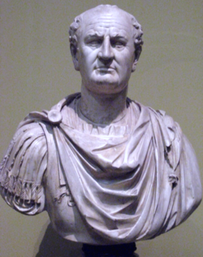 Year of The Four Emperors and Flavian Dynasty 6. Galba 7. Otho 8. Vitellius 9. Vespasian 10. Titus 11. Domitian 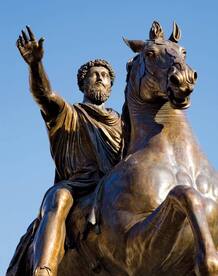 Nerva-Antonine Dynasty 12. Nerva 13. Trajan 14. Hadrian 15. Antoninus Pius 16. Lucius Verus 17. Marcus Aurelius 18. Commodus 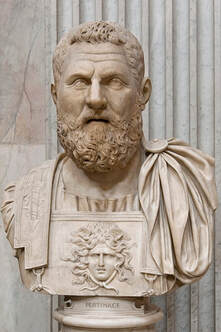 Year of The Five Emperors and Severan Dynasty 19. Pertinax 20. Didius Julianus 21. Septimius Severus 22. Caracalla 23. Geta 24. Macrinus & Diadumenian 25. Elagabalus 26. Severus Alexander The Fall of Rome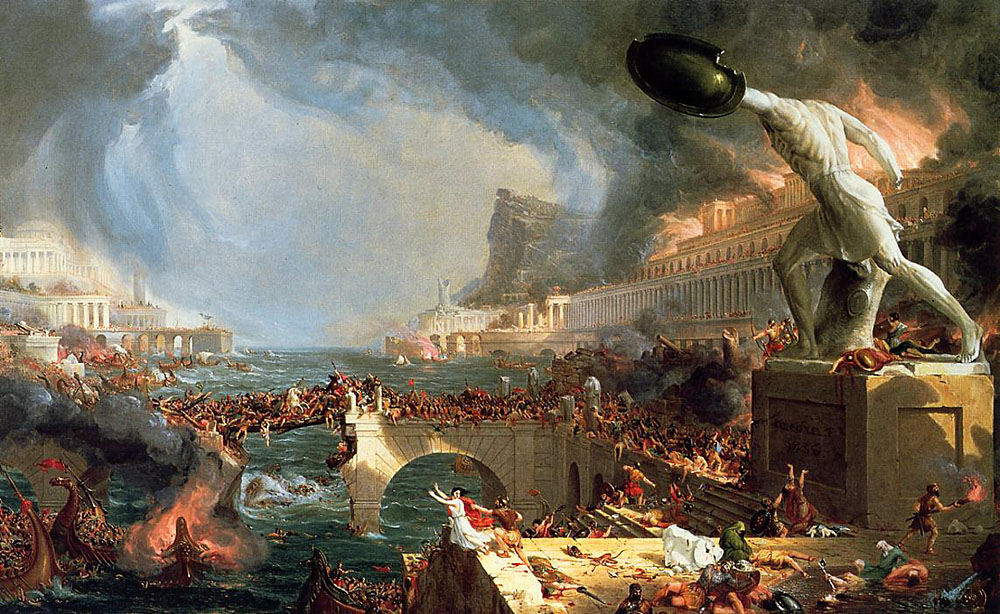 In 476 AD, The Roman Empire would officially meet its end, at least in The Western Half, at the hands of The Barbarians that it oppressed for centuries, with the sacking of Rome. Along with the sacking of Roman, political strife and unstable political structure would bring the end of The Power of The Roman Empire after 1000 years of being The World Super Power. The World's First Super Power may have fallen, but its ashes, the rise of The World we know of Today would rise and the heights of human achievement would be found. The Roman Empire may no longer exist, but its legacy is felt in Today's World and therefore, Rome's Power is eternal.
2 Comments
Nandan
6/23/2020 06:50:30 am
This website is underrated!!
Reply
The World Aloha
8/2/2020 06:55:30 pm
You got that right! Thank you for your support!
Reply
Leave a Reply. |
AboutWorld is dedicated to the subject of World History of Nations around The World! CategoriesSearch by Month
October 2020
|
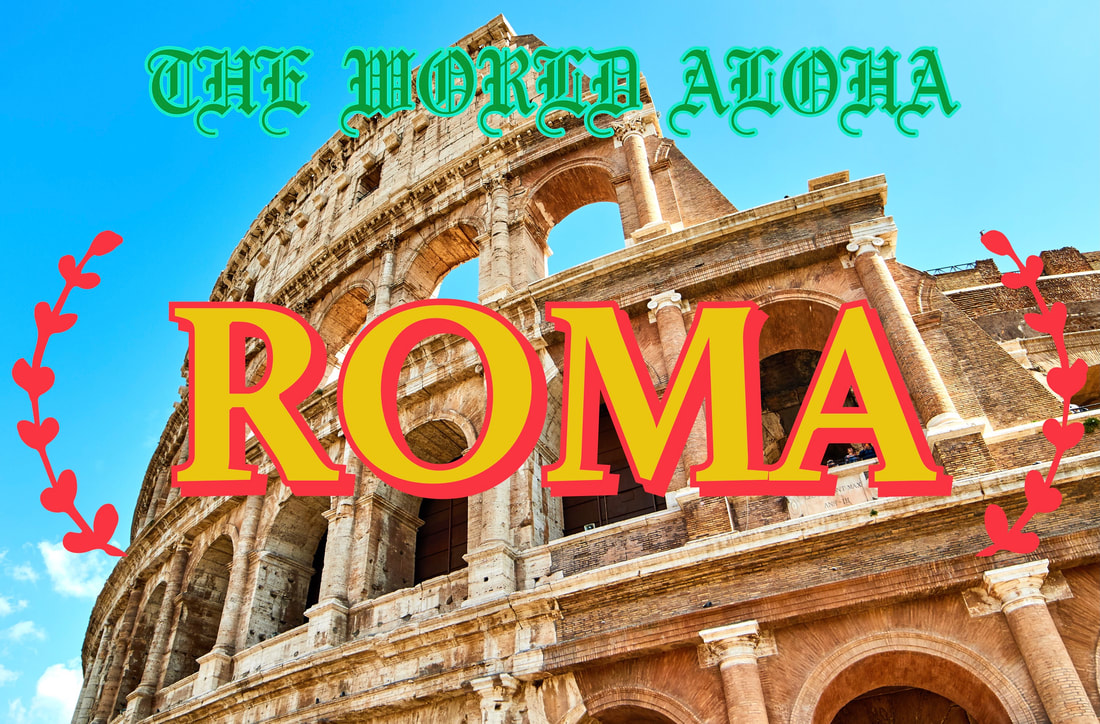
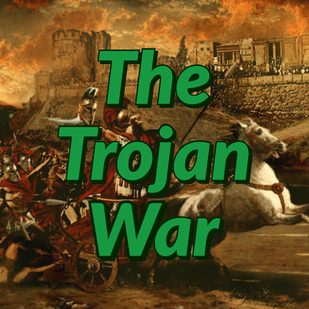
 RSS Feed
RSS Feed